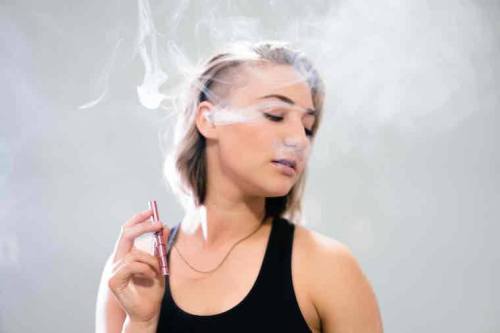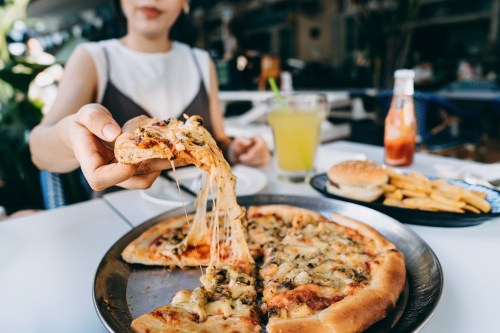I’m an anxious person by nature, but even so, smoking hasn’t been my go-to method of chilling out—no, not even weed. (Although I’m certainly reconsidering, in the name of feminism.) Blame having a straight-laced doctor as a dad, but I have never even put an e-cig to my lips.
But when I received an email with the subject line “Paleo air is now a thing,” I couldn’t help but wonder if finally, I had stumbled upon something worth inhaling.
Sure, Paleo has been a buzzword for a while now, but has it really progressed from eating plan to oxygen?
“Once upon a time, there was no pollution. Much like our food was unprocessed, so was the air we breathed,” the email read. “Introducing Monq, a first-of-its-kind portable and personal therapeutic air diffuser that gives you instant access to the same organic compounds our ancestors once breathed.”
Sure, Paleo has been a buzzword for a while now, but has it really progressed from eating plan to oxygen? (And what, exactly, is Paleo air—beyond just a marketing term?) In the name of research—not to mention a serious case of curiosity—I ordered a pack.
Here’s what happened when I tried Paleo air.
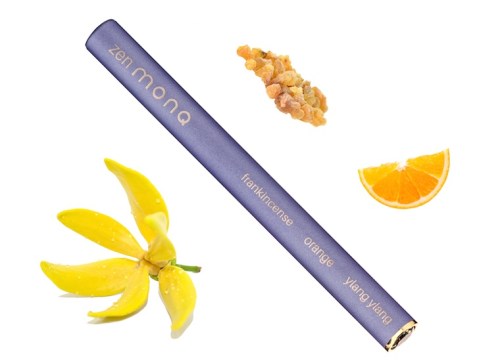
What it’s made of
A couple days after replying to the mysterious email, my Monq diffusers—which sell for $20 a pop—arrived in the mail. They looked like electronic cigarettes and came in seven “flavors,” all mood-related: Zen, Vibrant, Sleep, Healthy, Happy, Active, and Sexy.
I picked one up, feeling the weight of the metal rod on my hand. There was a jeweled gem on the end. Showing them off to my coworkers, I admit it, I felt…. Okay, okay, I felt cool.
I was getting ready for bed after having a couple drinks with friends and it occurred to me: This is when someone would normally smoke, right?
The packaging for each diffuser stick lists the herbs packed inside. Zen, for instance, has orange, frankincense, and ylang ylang. Vibrant is made of ginger, lemon, and spearmint. Monq (which is an acronym for Modified Observation of Natural Qualia—qualia meaning living in the moment) makes it clear there are some things pointedly not in the diffuser sticks: nicotine, tobacco, artificial ingredients, or cannabis. Later I learn the listed herbs make up 20 percent of what’s inside—in essential oil form. The other 80 percent is organic vegetable glycerin.
I had a phone call scheduled with Monq founder Eric Fishman, MD, the following week, but I didn’t wait to speak with him to try it out. I was getting ready for bed after having a couple drinks with friends and it occurred to me: This is when someone would normally smoke, right? I picked up Zen and put the lavender stick to my mouth and inhaled for a good three seconds before exhaling out my mouth. I did this again a few more times the way someone would a cigarette.
How did I feel? Definitely a bit heady and decidedly calmer. But this was also after a couple glasses of wine, so far things were inconclusive. It wasn’t until I would talk with Dr. Fishman that I would learn I did the whole thing completely wrong. I decided that I’d do it right next time—and sober.
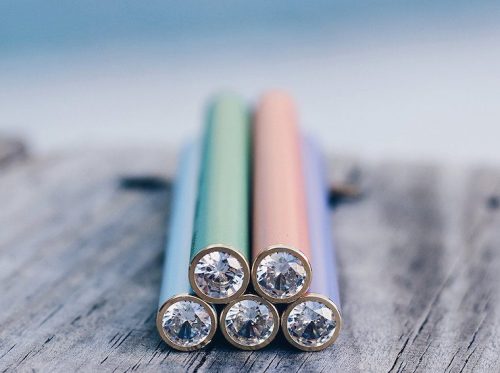
It’s not smoking
When I did finally talk to Dr. Fishman, he told me he was an orthopedic surgeon for two decades, and then quit to became a certified yoga instructor. After heavily researching aromatherapy, he decided to develop a company that used the modality in a totally new way. “Monq was born out of my sudden realization that there are non-Western medical ways of looking at health that can be very efficient and beneficial at helping people,” he says.
If you think this sounds a lot like forest bathing, you’re right—it’s the very ritual Dr. Fishman was inspired by, and science has proven it to be effective. Yes, nature is powerful, but the question here is, can Monq be as powerful as a trip to the woods? (And, on the other end of the spectrum, it’s reminiscent of some biohackers’ obsession with clean, purified air—sometimes even boosted with probiotics.)
But first he wants to get one thing straight: Dr. Fishman is quick to point out that one does not “smoke a Monq” because nothing is getting lit. “It’s similar to putting liquid in a pot on the stove, boiling it, and breathing in the steam,” he says. Another misconception: there’s no inhaling. “I don’t recommend breathing it in and out of your mouth,” he says. (Oops.)
“It’s similar to putting liquid in a pot on the stove, boiling it, and breathing in the steam.”
“We recommend taking a shallow breath in through the mouth and breathing it out through your nose,” he says. This not only stops the vapor from going into the lungs, but it’s more effective because you absorb the oils through the moisture in the mouth while also activating neurons at the base of the nose, which is very close to the brain. “That’s why smell is so powerful in evoking memories and emotions,” he says.
He also says people should only take two breaths a few times a day—not many all at once. (Oops again.)
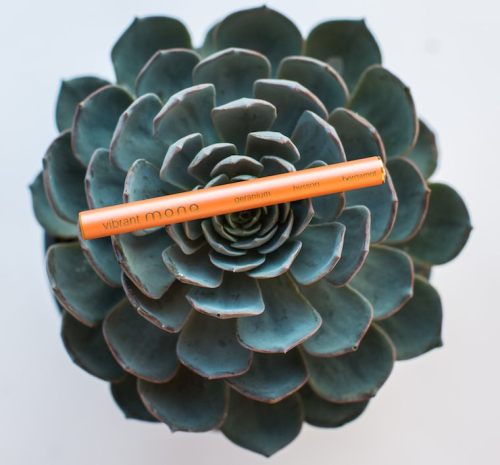
How it compares to liquid essential oils
The essential oils thing I get—sometimes I dab lemon balm on my wrists when I feel particularly stressed. But Dr. Fishman says therapeutic air works better, and not just for the reasons he already mentioned about activating neurons at the base of the nose, near the brain: “When you rub essential oils on your wrist, it’s more dilute because of the skin. This is more effective,” he says.
“It’s like sitting next to someone with really strong perfume. You notice it at first, but then you get used to it.”
Okay…But what about a room diffuser? At work, I sit next to Well+Good’s beauty editor, who turns one on every day, fueled by Desert Essence’s Mood Lifter Energy made with nutmeg, rosemary, citrus, lemongrass, and tea tree oil. How does Monq compare to that? Dr. Fishman isn’t fazed. “It’s like sitting next to someone with really strong perfume. You notice it at first, but then you get used to it. Taking just two breaths of Monq a few times a day makes it like the first time every time.”
It may sound like a condom tagline, but the science around aromatherapy and mood-alteration is real—especially when it comes to reducing stress. (Though Monq is still so new, scientists haven’t studied its effects yet.)
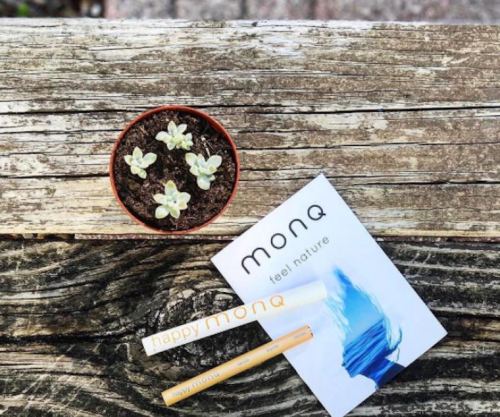
Doing it right
Now that I had all the info, I gave Monq another shot, taking a deep breath of Happy. And, maybe it was all just in my head, but I think it worked. Before bed, I tried Zen, and I felt more chill just a few minutes later.
I let two of my colleagues try Zen as well, without telling them which “flavor” they were breathing. I just asked them to tell me if they felt more energized, relaxed, happy…or nothing at all. Both told me they felt more relaxed just moments after taking a breath from the stick diffuser (which helped me feel even calmer, since it meant that my bedtime findings weren’t all in my head).
The concept is so innovative that [doctors] didn’t feel comfortable being interviewed without getting up close and personal with it themselves.
I reached out to eight other doctors—all who had been interviewed in the past about alternative forms of smoking such as e-cigarettes and vaping—but all refused to comment on Monq. The concept is so innovative that they didn’t feel comfortable being interviewed without getting up close and personal with it themselves.
After talking with Dr. Fishman and trying Monq, I do think breathing therapeutic air has a stronger effect than rubbing essential oils on the skin or using a room diffuser. But it might actually be too strong—certainly more powerful than the air our ancestors breathed, so I’m not sure I buy into the whole “Paleo air” hook.
I haven’t decided yet if I’m going to keep using Monq. But I’m glad more doctors are looking for holistic ways to alter mood states and relieve stress instead of just dolling out pills. Hey, maybe “smoke” breaks will soon be healthy after all.
Considering a puff of therapeutic air to cure your stress? Here are seven science-backed ways to deal—no pills required. And FYI, even confident celebrities like Kendall Jenner struggle with anxiety.
Sign Up for Our Daily Newsletter
Get all the latest in wellness, trends, food, fitness, beauty, and more delivered right to your inbox.
Got it, you've been added to our email list.
